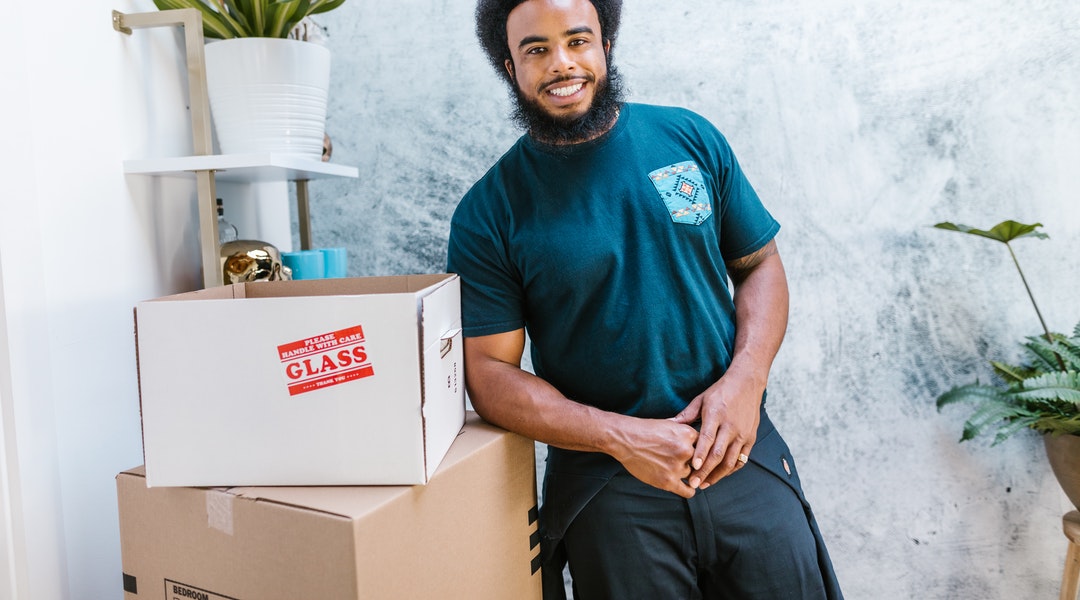Are you thinking about shifting houses to Kampala? If you are looking for house moving tips you have just gotten to the right place…
Moving is rarely a pleasant experience for anyone, but it is very exciting when it is well planned. Even if it’s for the better, it’s recognized to be one of the most stressful experiences you may go through in your life. Whether you move frequently or for the first time, the list of things to do when moving house can be intimidating.
Once you’ve made the decision to move, you’ll need to start planning how you’ll get out of your old house and into your new one.
You may think the moving day is a long way off, but it will arrive sooner than you think, and being prepared is the greatest way to keep worried at bay.
Here are some house moving tips to help you have a smooth transition.
1. Hand in Your Notice
If you’re renting, don’t forget to provide your landlord or estate agency with your notice of intent to vacate. Check how long this period is – it could be one month, two months, or more.
You may be under a contract with a break clause if you’ve been in your present house for less than a year. Before you give notice, make sure you know when you want to move.
2. Contact a Moving Company
You may need to get in touch with a professional moving company.
You will then ask for a quote, and check what services are included in their moving quote. It is also necessary to be informed about the company before booking a move with them. You need to make sure you pick the best moving company.
If you opt to hire your own movers, get a few quotations from different companies and ask them the following questions:
- What are their prices?
- What additional charges do they levy? Some companies charge more if the entry is difficult or requires numerous flights of stairs. It’s important to be very clear about what you need to move and how easy it is to get to both your existing and new house.
- Services for packing and storing
- Recommendations / referrals
- You should also inquire if they provide insurance.
3. Start Decluttering

Take advantage of this opportunity to declutter your belongings. Decluttering isn’t as difficult as you would assume; all you need is some motivation and a guide on how to get started.
Donate anything you don’t need – you can also start packing non-essential items or temporarily storing some larger possessions if necessary. Check to see if you have enough boxes and packaging materials.
4. If you require storage, you can rent it
If you require storage, now is the time to shop around for possibilities, evaluate rates, location, and size. Make sure you receive a few quotations because prices can vary a lot. This must be scheduled ahead of time. Make sure you pick the best storage service providers, here is a guide to picking the best storage service provider.
5. Start Planning for the Move
Begin generating a list of all your furniture and accessories. Make a list of all the items you’ll be bringing with you when you move. You’ll be able to keep track of what you’re moving and what you’re leaving behind in this manner. This is also very useful to offer to the movers and to determine how much packing you will require.
If you don’t have a floor plan for your new house, request one from your real estate agent. This is a fantastic approach to figure out where your furniture from your existing home will go in the new one.
6. Consider the Children and Pets
If you’re relocating a little or furry family member, you may need to confirm new school placements, or at the very least notify the old school of the change of residence. You’ll also need to prepare for the move and ensure that adjusting to the new environment is simple.
If you need to book kennels or a cattery for your pets during your move, do so well in advance. Consider how they’ll be moved and how you’ll care for pets and youngsters on moving day (s). If you are relocating to another nation, make sure you are aware of the country’s criteria.
Check ‘Tips on how to help your kids adapt after shifting’ for additional information on moving with kids, and ‘how to relocate with your pet in Uganda’.
7. Update your Details and Sort out Utilities
You’ll need to update your information in a number of places. Consider who you should notify. You’ll need to find a new doctor and dentist if you’re moving to a new place. If not, make a list of all the locations you need to alter your address, including your existing healthcare providers.
Sort out your utility connections at both your old and new homes so that you aren’t inconvenienced when you move or overpay for services you aren’t utilizing.
8. Pack your Belongings and Shut Down

You should start packing more carefully around two weeks ahead of time. As the big day approaches, be sure you’ve virtually completed your packing. Because you’ve planned ahead of time, you’ll be able to mark up your boxes in a logical manner.
Start defrosting and drying out your fridge/freezer and emptying out your kitchen cabinets.
Keep in mind your garage and loft.
9. Inform your Friends
You should notify your friends and relatives of your new address and, if necessary, seek their assistance and support. To avoid any problems on moving day, make sure you’ve alerted your present neighbours and checked in with them to make sure there’s room for your moving van.
10. Make an Official Confirmation
Make sure to check with your solicitor or estate agent to make sure the move will go well. You’ll want to be aware of any delays as soon as possible. This should be checked a week before you want to relocate.
11. Make travel arrangements
Have your car maintained and tyres examined if you’ll be travelling a long distance on a moving day. Confirm your itinerary and make sure there are locations to stop for fuel and breaks along the way.
12. One Final Walkthrough
Make a note of your utility meter readings on the day itself. Water, gas, and electricity are all included. Take pictures of each of these so you can validate your move with your providers.
Make one last inspection of your home. Have you neglected to change your sheets or leave your toiletries in the bathroom? Are there any greenhouses or garages that are completely clear? Collect everything and empty the area fully.
Before moving to the new house, here are a few things you should do.
- Make sure the new place is clean and ready; you can get in touch with cleaners to do this for you if you are not in a position to do it yourself.
- Set up utilities before time; You don’t want to spend your first night in your new home in the dark, so make sure your utilities (electricity, heat, gas, and water) are set up and ready to go before you move in. You’ll also need to pay for Wi-Fi, a phone line, and cable.
- Keep track of your paperwork; Make sure you have keenly read every contact before signing, this will help avoid disagreements that may arise in the future.
- Hang all your window covering at the new house; make sure the curtains are up before time.
- And finally, pack an essential bag.
With the above house moving tips, we are certain that you will enjoy moving with us.
Happy moving!


